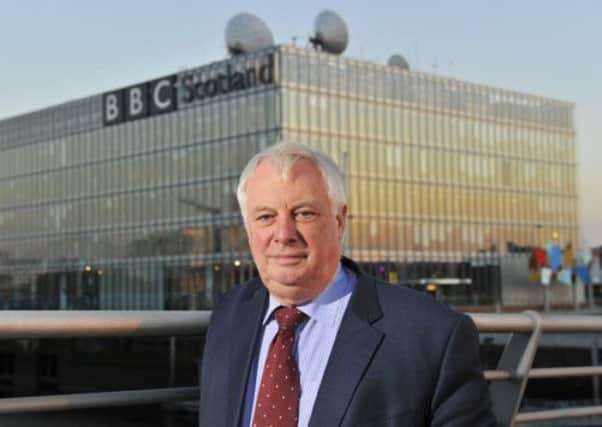BBC’s Lord Patten ‘shocked’ by large pay-offs


He told the Commons public accounts committee yesterday it was “a question of shock and dismay for us” when it emerged that in some cases staff had been paid more than they were contractually owed.
Lord Patten joined BBC bosses including director-general Tony Hall and human resources director Lucy Adams at the committee. The session follows a National Audit Office (NAO) report showing huge payments, of hundreds of thousands of pounds in some cases, were made even though executives were not always entitled to the money.
Advertisement
Hide AdAdvertisement
Hide AdAsked why he did not know some payoffs had gone beyond what was contractually needed, Lord Patten appeared to suggest former director-general Mark Thompson should be called to give evidence.
He told the committee: “If you call a previous director-general of the BBC, I will be as interested as you are why we didn’t know.”
Speaking about Mr Thompson’s eventual successor George Entwistle, who stood down after a few weeks in the job, Lord Patten said his payoff of £450,000 was necessary to prevent a potentially larger bill if they had got bogged down in legal argument. He said: “We would have fetched up paying more than we in fact had to pay him.”
Lord Patten admitted Mr Entwistle was paid for an extra 20 days’ work to help manage the transition to a new director-general but “as it happened he wasn’t required to do anything”.
BBC Trust member Anthony Fry said some BBC staff were “out to lunch” in regard to how much they expected senior executives to be paid, and some people had got “unreasonable” salaries and payoffs.
He was also questioned on a letter from Mr Thompson to the trust in which he said the payoff to former deputy director-general Mark Byford, who walked away with almost £1 million, was within contractual arrangements, when in fact it was not.
Asked if the former director-general had lied to him, Mr Fry refused to reply and said there was “some disconnect” between what was in the letter and what was subsequently uncovered by the NAO in its report.
Lord Patten suggested some of the payments had been approved to “get people out of the door” after the BBC decided to cut the number of senior managers it employed.
Advertisement
Hide AdAdvertisement
Hide AdMr Fry said members of the Trust, which is the governing body of the BBC, were not always included in all decision making. He said there were times when “people like me were asked in not particularly pleasant words to get back into our box”.
Ms Adams, who is paid a salary of £320,000, said Mr Byford had an expectation of a payment in lieu of notice of 12 months because it had become “custom and practice” at the BBC. She said she raised the possibility of a cap on redundancy payments in 2011, adding: “I was well aware this was unsustainable.”
Committee chair Margaret Hodge MP asked why she did not put her foot down, adding that, while the contracts were “lousy”, the BBC paid even more than required.
Ms Adams was asked why ex-BBC2 controller Roly Keating got a £375,000 payoff when he had another job to go to.
She said she was concerned that “if we didn’t pay him to go he would stay” and that would have cost around £550,000.
Mr Keating returned the money after learning it had not been properly authorised.
Ms Adams said the BBC had “no legal ability” to get money paid in lieu of notice back if someone got another job in the period covered.